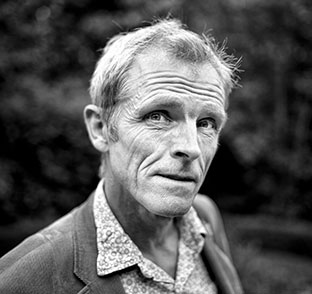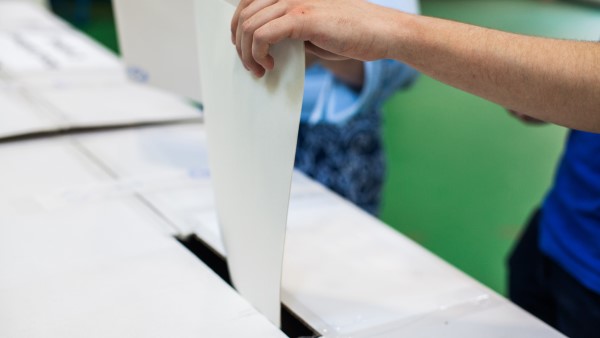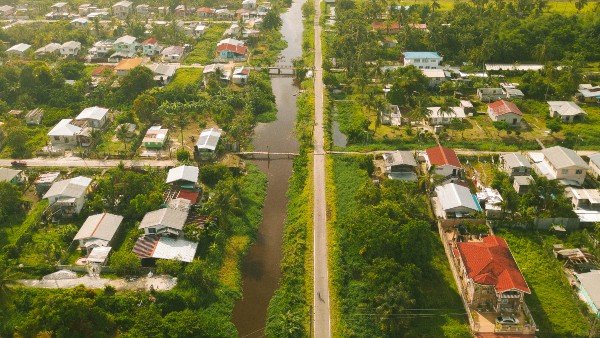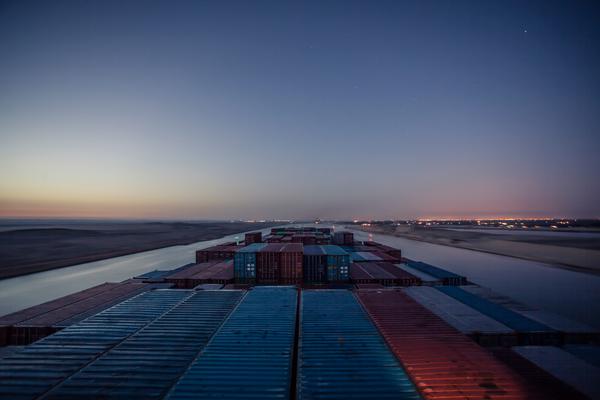In the wake of the postponement of the UN Climate Change Conference (COP26) talks, David Lambert FRSA argues it is time for us to face the reality that a 3-4-5o rise by 2100 is now inevitable and this means making profound choices now about how we live our lives.
As part of Bridges to the Future, the RSA’s response to Covid-19, Matthew Taylor interviewed Nigel Topping last month on the theme of Greening the Recovery. Nigel is the UK’s High-Level Climate Action Champion for the UN Climate Change Conference (COP26) that was to have been held in Glasgow this November, but which was postponed to 2021 as a result of the Covid-19 crisis.
COP26 had been intended as the five-year review of the performance of signatories of the UN’s 2015 Paris climate agreement; it was to serve as a crucial holding-to-account of their commitment to reduce emissions and, potentially, a wake-up to their poor performance. No one wants to say it but the postponement is potentially a serious blow to momentum when combined with the repercussions of the pandemic. We have already seen Naomi Klein’s shock doctrine in action as the US government tears into civil liberties and environmental protection in the name of security and economic recovery. Meanwhile, in the UK, bail-out funds are being directed to polluting industries without any conditions on emissions-reduction targets.
The Paris Agreement committed governments to setting targets or Nationally Determined Contributions to ensure that global heating this century was kept well below the level of 2 degrees celsius but in March this year, António Guterres, the secretary-general of the UN warned that the world is ‘way off track’ on meeting those Paris targets.
In the absence of the Glasgow talks this year, Nigel has been instrumental in launching the UN’s Race to Zero campaign in June, which aims to galvanise support for the target of net zero by 2050. His proposal is simple. Ever since the final report of the Stern review we have known that the cost of ‘tackling’ climate change is far less than the cost of not tackling it. We know that the only viable economic future is a net-zero one and the sooner the better. It therefore makes sense to channel public investment into things we need to ramp up rather than waste it on things we want to phase out. In order to steer and de-risk investment, the government needs to set clear ‘phase-out’ deadlines for business to work with and plan for.
As Topping says, the alternative is ‘ugly’. It may just be his professionalism, but ‘ugly’ is an understatement; like an airline pilot referring over the PA to a little difficulty. The alternative is genocidal and very possibly suicidal. There is no longer any real scientific doubt that the planet has entered a sixth mass extinction event. Only human incredulity prevents us from grasping that extinction means us too and appreciating the timescale likely to apply as a result of our failure to act.
It was only a half-hour discussion but in that time, I wish Matthew had pressed his interviewee a little further. Topping naturally has a commitment to the process of which he is champion, but I wanted to know how he felt about the postponement of the COP26 talks in this year of all years, how he felt about the distraction of Covid-19, and the alarming prospect of reckless short-term bail-outs. 2020 was after all the year in which António Guterres, Sir David Attenborough, Prince Charles, Extinction Rebellion, Greta Thunberg et al, had said rapid decarbonisation must begin; the year when we must begin the ‘unprecedented changes’ to our economies and ways of life if we are to limit warming to 1.5 degree celsius.
I wish Matthew had asked Nigel about the possibility that, even if we did achieve carbon net zero by 2050, that will not succeed in keeping global temperature rise below 2 degrees celsius. There is increasing consensus that the self-perpetuating feedback loops accelerating the loss of arctic sea ice, permafrost and the Antarctic icesheets, warming the oceans and fanning wildfires are already underway. Many scientists are now warning that it is game over for preventing dangerous climate change.
It is only human to lock into ‘doing something’. The heroic engineers in the Titanic kept doing something until they went down with the ship; test pilots keep doing something until they hit the deck; climate activists will continue to throw themselves into actions to save the planet.
But the time has come to ask, what if we cannot stop the global heat-engine? Not just because so many warming effects are now set in motion through those feedback loops, or because so much carbon is already in the atmosphere but because, actually, the economic and political system we have created is itself a feedback loop. What if a 4-5 degrees celsius world really is on the way for 2100?
Many scientists and politicians are acknowledging that now, even before Donald Trump pulls the US out on 4 November, the Paris agreement is dead. Most signatories are failing to achieve anything close to what is required. Worse, there is denial and obfuscation from politicians. It takes courage for scientists to step outside their professionalism and tell the truth without fear but many now are doing so. We have not yet seen any national politician muster the same courage. And internationally, despite the clarity of leadership from Gutteres, the UN’s principles of cooperation and commonality are under attack as never before: at the very time we need solidarity we have cynical and reckless division.
This June, the UK government’s Climate Change Committee warned that “UK plans have failed to prepare for even the minimum climate risks faced” and that “in the absence of the required very rapid decarbonisation’”, the government must consider planning for 4 degrees of warming in the UK by 2100. Well, that rate of decarbonisation is definitely absent. We need to accept that reality: Paris is a goner; now what?
We need to ask ourselves whether preventing a 2 degree celsius increase is now not just a lost cause but, worse, a dangerous distraction. If Paris is a goner, then we need to begin to focus on the reality that a 3-4-5 degrees celsius rise by 2100 is now inevitable, as is the societal fracturing which will come with the breakdown of global supply chains and of international banking structures. Instead of dreams of holding on to what we have, we need to be preparing for its loss.
There are lessons to be learned from the rehearsal that Covid-19 has offered us in the UK. It has not all been bad; a brief spasm of panic-buying, yes, but then a long tail of orderly queues and an efflorescence of communities self-organising to support each other. There is great hope here of human resilience, kindness and ingenuity. People are better and wiser than the media or the government likes to think; there will be no remotely adequate political response to the emergency without a genuine citizens’ assembly being asked serious questions about how we prepare for what is coming.
To confront, personally, socially, politically, the fact that in all likelihood we are heading for that disastrous scenario by 2100, is harder than continuing to think we can ‘do something’ to prevent it. But this is not a counsel of despair: we still need to do everything we can to buy time and to ensure as best we can that we avoid a chaotic breakdown – that rather than crash-land, we ‘extend the glide’ as far as possible. Topping’s Race to Zero can still help to buy us time.
But in ourselves and in our communities, we also need to begin a process of confronting the reality of this future. For example, we need to identify what we really need to hold on to and what we will have to relinquish. We need to begin to build local community networks to provide resilience and mutual support, we need to reskill, transform education and expectation, and get into good habits of repair and reuse. Above all we need to wean ourselves off a culture and economy of unsustainable debt and consumption, and embark on the essential work of repairing our relationships with the earth and with each other.
David Lambert is director of the Parks Agency, a consultancy specialising in the conservation and management of public parks and green spaces. Since 2018, he has been closely involved with Extinction Rebellion and campaigning for action on the climate and ecological emergency.
Related articles
-
Our yes/no voting system means nothing ever happens
Peter Emerson
Climate change tells us we must cooperate or die. But where’s the cooperation between political parties? Peter Emerson suggests a radical change.
-
Lessons from the land of many waters
Alexander Alder-Westlake
In a time of rising sea levels and flooding threats, Alexander Alder-Westlake suggests we draw lessons from a country most of us know nothing about. With its unique geography, topography and history, Guyana has much to teach the rest of the planet.
-
All we are saying is give degrowth a chance
Chris Oestereich Sam Bliss
A decade ago, a container shipping worker had an epiphany, and it caused him to question the very basis of his business. Sam Bliss and Chris Oestereich take up the story.




Join the discussion
Comments
Please login to post a comment or reply
Don't have an account? Click here to register.
I remember Obama telling Leonardo Dicaprio that people have to vote for the changes needed, and that America wasn't ready to do that. It's the same in the UK. There has to be a continuous publicity campaign in the style of the AIDS awareness campaign in the 80's. Without that there is no hope of elected representatives doing what is needed, even though they are legally obligated! Perhaps details about the preparations needed for 4 degrees of global warming should be part of that campaign.